The War to End All Peace
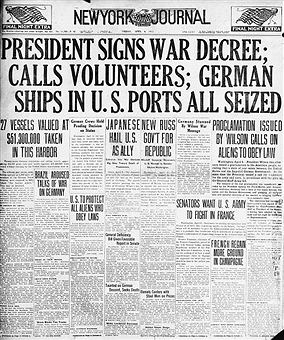
Today, 6 April 2017, marks the one hundredth anniversary of America’s entry into the First World War, probably the decisive factor in the eventual outcome of that war a year and a half later. Most schoolchildren, if they are taught anything at all about this event, hear it attributed to the German sinking of the Lusitania with American passengers aboard. Many do not know that the Lusitania was a British ship, that its sinking occurred nearly two years before our entry into the war, and that it was carrying a substantial amount of munitions, making it fair game under the laws of war. The existence of the munitions was only publicly acknowledged in 1982 after a salvage operation was announced; the British government finally admitted the truth, citing fear that explosives still inside the wreck might claim a few lives even yet.
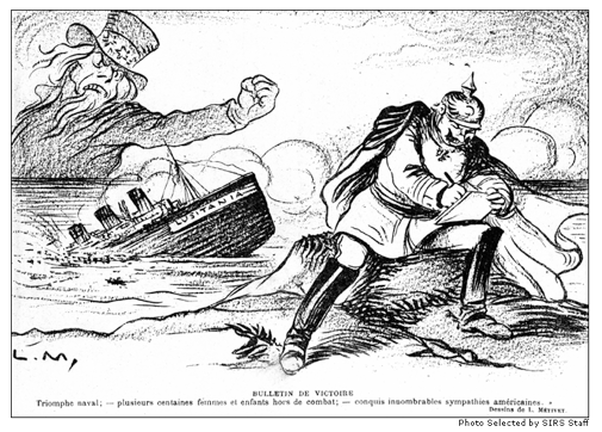
Anti-German propaganda made much of the fact that the Lusitania was not a warship, but failed to mention that Britain had commonly disguised its warships to look like merchant ships and even to fly the flags of neutral nations. It was in response to such illegal practices that the German navy adopted a policy of treating any and all ships heading for Britain as potential enemy combatants. In the case of the Lusitania, the German Embassy in Washington even issued public warnings to potential travelers that if they sailed on any ships headed for Britain, they did so at their own risk.
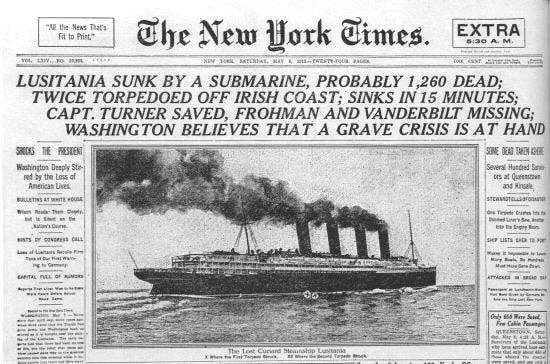
A prominent representative of the New York German-American community also tried to take out ads in 50 major American newspapers, warning Americans of the risk of embarking on any transatlantic voyage to England. Only one paper, the New York Tribune, ran the warning—on the very morning the Lusitania sailed, too late for anyone to make new travel plans.
Also absent from the usual accounts of the Lusitania is the information that it was a response to the British blockade of the Central Powers, illegal under the laws of the Hague and Geneva Conventions, as well as the London Declaration concerning the Laws of Naval War. This blockade led to terrible shortages of food and medicine for German soldiers and civilians alike. The people were largely reduced to subsisting on turnips from 1916 onward, and by the end of the war, malnutrition had contributed to over half a million deaths. Unrestricted submarine warfare was a desperate effort to break through the blockade, and the attack upon the Lusitania was consistent with that announced policy.
These were not the only falsehoods that helped nudge America toward involvement in the bloodletting. The outbreak of war was accompanied by copious propaganda about fictitious German atrocities, such as bayoneting Belgian babies, raping nuns, and nailing Entente prisoners on barn doors. The present authors know of a recent case where a US Marine recruit heard the “bayonetting babies” story in boot camp just within the last few years!
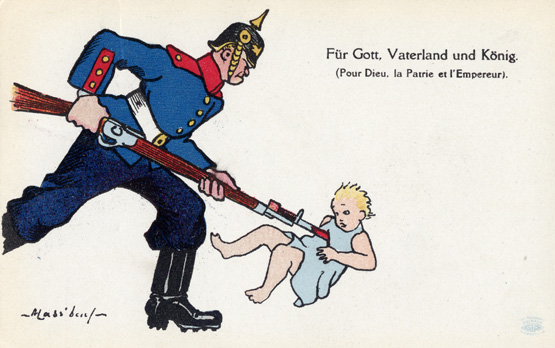
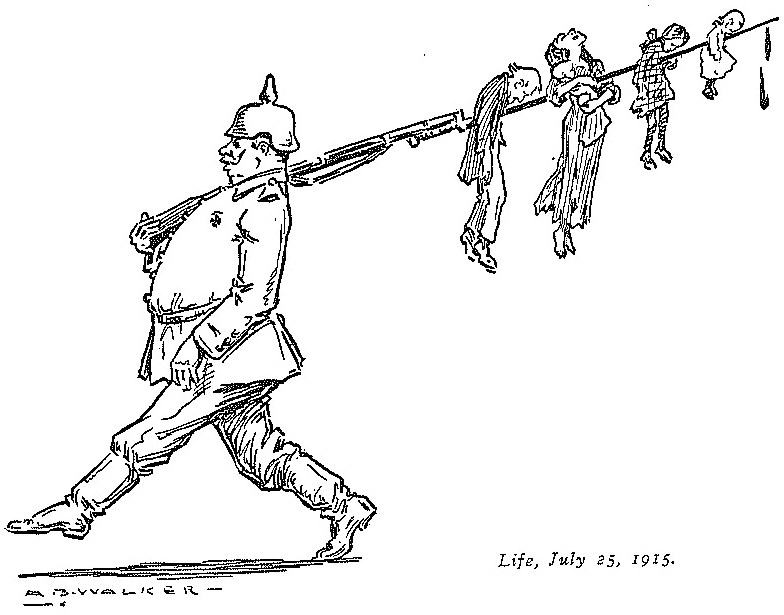
Another atrocity story destined for a great future, was the supposed German Corpse Factory. This lurid tale claimed that the Germans used the corpses of their own war dead for industrial purposes such as producing tallow for candles. This entirely discredited story may have inspired the later holocaust chestnut involving soap made from murdered Jews.
The British government went so far as to appoint a commission to “investigate” the allegations; they dutifully reported back that the stories were true. When historians tried to examine the committee’s papers after the war, these were found to have disappeared. Surviving correspondence makes clear that members were in fact skeptical.
Of course, the greatest fabrication of the whole conflict was the claim that Germany was uniquely responsible for starting the war. The historical record shows that it was Great Britain—and in particular King Edward VII and his Foreign Secretary, Sir Edward Gray—which invested years of diplomatic effort into the isolation and encirclement of Germany. They accomplished their purpose in 1907 when the Triple Entente was established: an alliance between Britain, France and Russia against Germany.
On the home front, America’s entry into the war was accompanied with an intimidation campaign against German-Americans, and all things German. Sauerkraut was renamed “Liberty Cabbage”; breeds of dog associated with Germany were at times reportedly killed, and it was not uncommon for German Americans to be assaulted. German language newspapers and periodicals were forced to shut down; German schools and social clubs getting forcibly closed; German churches switched to holding their services in English. Many German families in America even began changing their family names (i.e., from Schmidt to Smith, or Müller to Miller). As a result, many of their descendants are unaware of their German heritage to this day.
Ultimately, as we have seen, such lies employed by Britain, played an important role in whipping up popular support for America’s entry into the conflict. Most Americans, then as now, will support wars if they can be framed as a struggle between good and evil. The priggish Woodrow Wilson promised his countrymen they would be fighting variously the “war to end all war” and to “make the world safe for democracy”—making the venture very much the prototype for today’s so-called humanitarian interventions.
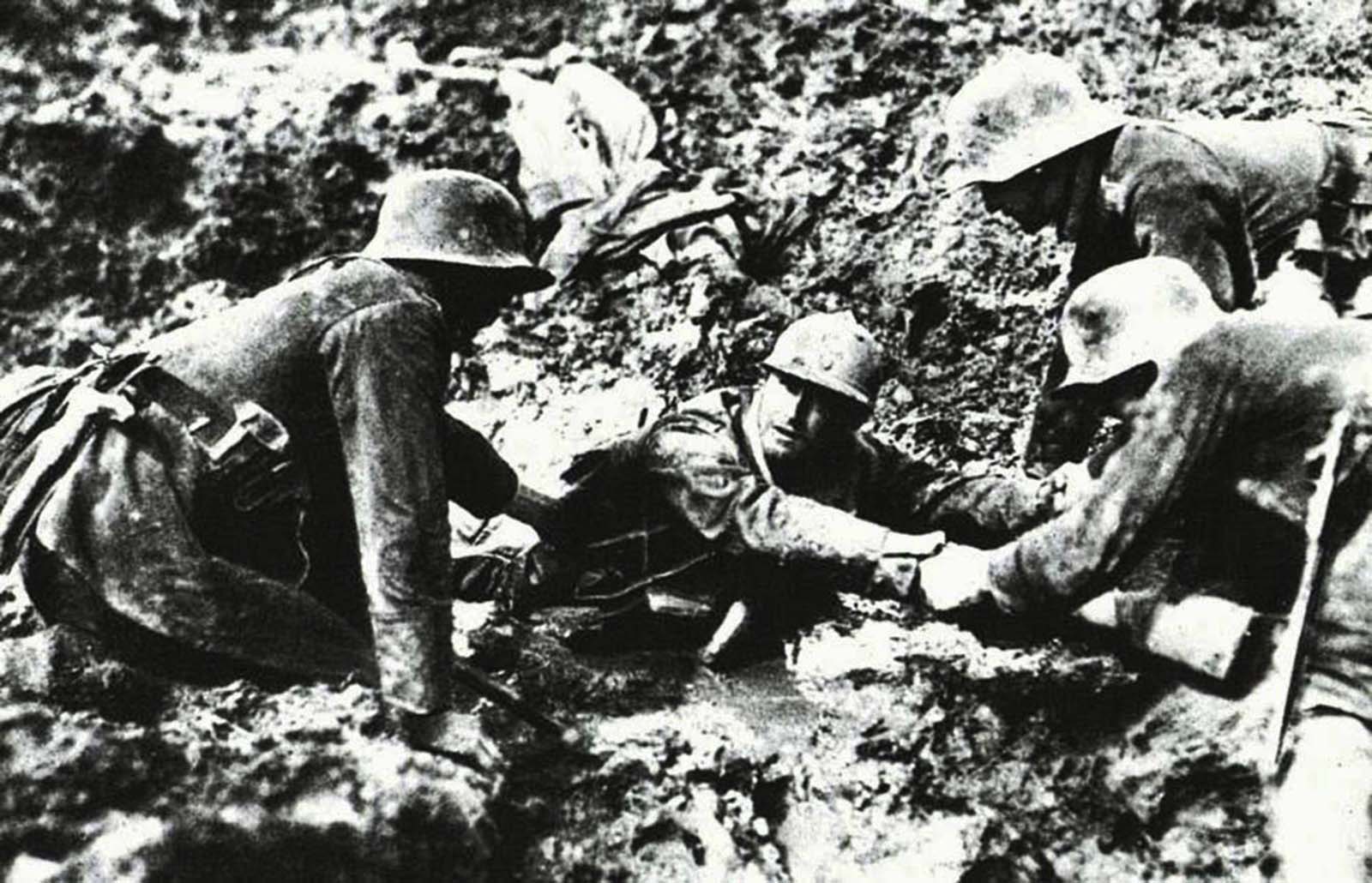
German troops trying to rescue a French soldier from sinking in a mud hole, 1916
After the guns fell silent, Wilson insisted upon the inclusion of the “War Guilt” clause into the Versailles Treaty, stating that Germany “should, morally, pay for all war costs, but, because it could not possibly afford this, would be asked only to pay for civilian damages.”
Germany was dismembered and forced to pay crushing reparations, wrecking what was left of its economy and making the rise of a revanchiste German nationalist political movement virtually inevitable. But rather than adopt this natural direction of causation, many still prefer to project Hitler back onto the history of Imperial Germany.
The work of the Versailles Treaty was completed by the occupation which followed the Second World War. It is essential to understand that so-called denazification was not limited to eliminating vestiges of National Socialism in the strict sense, but sought to destroy any sense of German pride, identity, and healthy self-respect. And if this did not entirely succeed among those who actually remembered the war, it succeeded beyond its creators’ wildest dreams with those born later, who were happy to think of themselves as morally superior to their parents’ and grandparents’ generation.
Today’s Germany is a kind of Through the Looking Glass anti-German caricature, and it can come as no surprise to anyone who has lived there that the country is now taking the lead in opening up Europe to foreign invasion. They are doing this on the basis of what they were taught by those who defeated them in the two world wars. Denazification was the original form of political correctness, and German guilt was the prototype of today’s White guilt. There is a grim justice in the way such psychological warfare has turned on its original creators, the western allies, who never imagined they would fall victim to what they self-righteously unleashed on a defeated enemy.
Addendum, April 8, 2017: The Zimmermann Telegram was a coded diplomatic message sent by the German Foreign Office to the government of Mexico in January 1917 proposing a military alliance between Germany and Mexico in the event of America’s entry into the war. Mexico was to be awarded the States of Texas, New Mexico and Arizona for their help in fighting the United States. The telegram was decrypted by British intelligence and made known to the American public in a manner that downplayed the conditional character of the offer and suggested Germany was proposing aggression against the United States. The Mexican Government was intelligent enough to realize the folly of attacking the US even with German help, so the telegram had little practical effect apart from its propaganda value in whipping up support for America’s entry into the war.





Comments are closed.